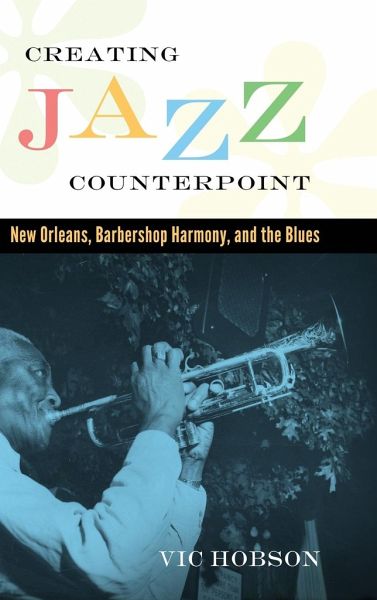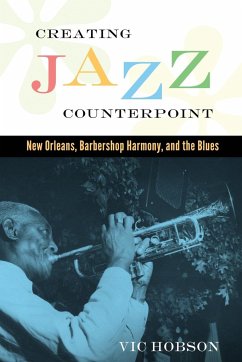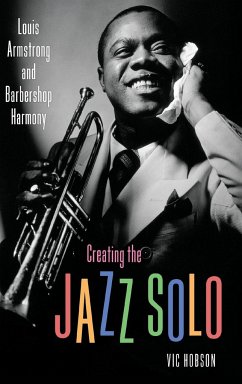
Creating Jazz Counterpoint
New Orleans, Barbershop Harmony, and the Blues
Versandkostenfrei!
Versandfertig in 1-2 Wochen
112,99 €
inkl. MwSt.
Weitere Ausgaben:

PAYBACK Punkte
56 °P sammeln!
The book Jazzmen (1939) claimed New Orleans as the birthplace of jazz, and introduced the legend of Buddy Bolden, as the "First Man of Jazz." Much of the information that the book relied on came from a highly controversial source: Bunk Johnson. He claimed to have played with Bolden and that together they had pioneered jazz. Bunk Johnson made many recordings talking about and playing the music of the Bolden era. These recordings have been treated with skepticism because of doubts about Johnson's credibility. Using oral histories, the Jazzmen interview notes, and un-published archive material, t...
The book Jazzmen (1939) claimed New Orleans as the birthplace of jazz, and introduced the legend of Buddy Bolden, as the "First Man of Jazz." Much of the information that the book relied on came from a highly controversial source: Bunk Johnson. He claimed to have played with Bolden and that together they had pioneered jazz. Bunk Johnson made many recordings talking about and playing the music of the Bolden era. These recordings have been treated with skepticism because of doubts about Johnson's credibility. Using oral histories, the Jazzmen interview notes, and un-published archive material, this book confirms that Bunk Johnson did play with Bolden. This, in turn, has profound implications for Johnson's recorded legacy in describing the music of the early years of New Orleans jazz. New Orleans jazz was different from ragtime in a number of ways. New Orleans jazz was a music that was collectively improvised and it had a new tonality-the tonality of the blues. How early jazz musicians improvised together and how the blues became a part of jazz has until now been a mystery. Part of the reason that New Orleans jazz developed as it did is that all the prominent jazz pioneers, including Buddy Bolden, Bunk Johnson, Louis Armstrong, Sidney Bechet, Johnny Dodds, and Kid Ory, sang in barbershop (or barroom) quartets. This book describes in both historical and musical terms how the practices of quartet singing were converted to the instruments of a jazz band, and how this, in turn, produced collectively improvised blues inflected jazz.














